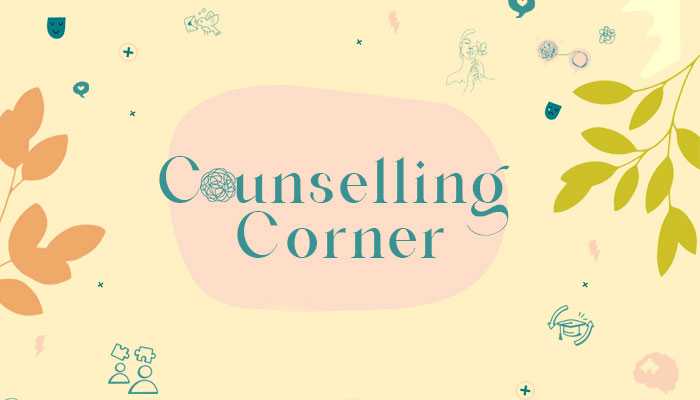
"I put myself under immense pressure of living up to their expectations," says a chronic people pleaser
September 18, 2024
Dear Haya,
I've been struggling with a problem that has led to me getting into so many other issues one after another. I have a very hard time saying no to people and often give into requests if I'm ever approached for help or kind of favours.
In all of this, all these years, I've noticed that I burden myself trying to keep people happy and put myself under immense pressure of living up to their expectations. I understand it is me who's responsible for the outcome of not being able to say no straight away because my very giving and soft-spoken nature.
Now, however, I feel really burdened and stressed as the load of all the yeses I've said in my life has grown exponentially and being a people pleaser is never something I had wanted to be — neither in my personal or professional life.
Please tell me how to start saying no and be assertive.
— A chronic people pleaser

Hello chronic people pleaser,
It’s clear that you’re carrying a significant amount of stress and emotional burden from struggling to say no and manage others’ expectations. Your desire to help and your giving nature are valuable traits, but it sounds like they have led you to feel overwhelmed and unfulfilled, neglecting your own needs and well-being. It’s important to recognise that your feelings are valid and that it’s okay to prioritise your own needs.
The good news is it is always better late than never!
Being assertive is a skill that anyone can learn at any point in their lives. And yes you can be both soft spoken AND assertive at the same time.
Below are some steps to start saying no and developing assertiveness:
1. Identify your needs: Reflect on what you need and want for yourself. When you understand your own priorities and limits, it becomes easier to make decisions that align with your well-being.
2. Understand your WHY: How does people pleasing serve you? what do you hope to get by always saying yes? Approval? Acceptance from others? I would encourage you to get curious about what drives that behaviour. There is always an unconscious trade off in why we do what we do.
3. Practice self-awareness: Notice when you’re inclined to say “yes” out of habit or fear of disappointing others. Explore what comes up for you when you say no. Pay attention to the physical and emotional signals that indicate you might be overextending yourself.
4. Practice saying no: Practice different ways to say “no” in a way that feels comfortable to you. I hear you say you’re not able to say no right away – in that case your best option immediately is to buy yourself some time. Perhaps to say “I’ll get back to you on that”, you can always get back to them via text, in person, or call with an intentional response. Remember, it’s okay to decline requests. You can also say, “I can’t help with that right now,” without feeling the need to over-explain. You can also say what you can’t and can do. For example, “I won’t be able to meet you for dinner but I can make it for lunch."
5. Set clear boundaries: Establish and communicate your boundaries with others. This involves being clear about what you can and cannot commit to. Setting boundaries is a form of self-care and helps protect your time and energy.
6. Start small and know your limits: Begin by setting boundaries in less challenging situations to build your confidence. As you become more comfortable, you can gradually apply these skills to more significant or difficult situations. Reflect on what you are comfortable with and what feels overwhelming. Understanding your limits will aid you in setting boundaries.
7. Be prepared for push back and manage your guilt: Some people may resist your boundaries. Stay firm and remind yourself that your needs are valid. It’s normal to feel guilty when you start setting boundaries, but it’s important to remember that taking care of yourself is not selfish. You are entitled to prioritise your own needs and well-being.
8. Prioritise self-care: Make time for activities that recharge you. When you prioritise your own needs, it becomes easier to set and maintain boundaries.
9. Seek professional guidance: Working with a therapist can provide you with additional support and strategies tailored to your specific situation. Therapy can help you explore any deeper issues that contribute to your difficulty with saying no and offer personalised tools for developing assertiveness.
10. Celebrate progress: Recognise and celebrate your efforts and successes in being more assertive. Acknowledging your progress can help reinforce positive changes and motivate you to continue developing these skills.
Implementing these strategies can help you protect your emotional well-being and becoming more assertive. By taking these steps, you can start to shift towards a healthier way of interacting with others while maintaining your own well-being. Remember, it’s about finding a balance that allows you to be supportive without sacrificing your own needs and peace of mind.

Haya Malik is a psychotherapist, Neuro-Linguistic Programming (NLP) practitioner, corporate well-being strategist and trainer with expertise in creating organisational cultures focused on well-being and raising awareness around mental health.
Send her your questions to [email protected]
Note: The advice and opinions above are those of the author and specific to the query. We strongly recommend our readers consult relevant experts or professionals for personalised advice and solutions. The author and Geo.tv do not assume any responsibility for the consequences of actions taken based on the information provided herein. All published pieces are subject to editing to enhance grammar and clarity.













